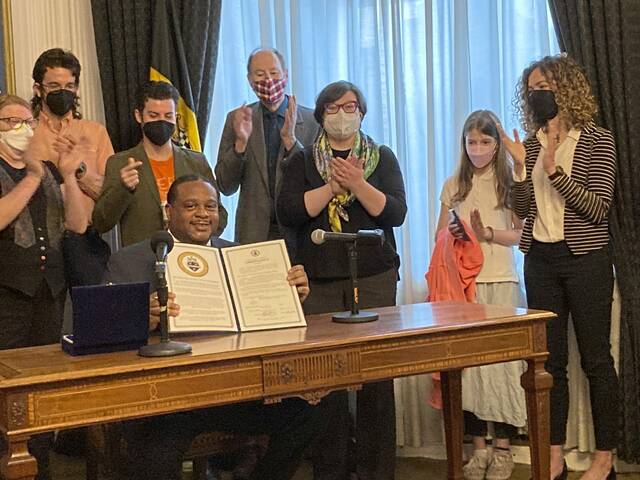Pittsburgh Mayor Ed Gainey on Monday signed legislation that expands inclusionary zoning into the city’s Bloomfield and Polish Hill neighborhoods.
The measure earned City Council approval two weeks ago, after community advocates had pushed for the measure for years, said Councilwoman Deb Gross, who represents the neighborhoods. Community groups in both neighborhoods were widely supportive of the measure in a public hearing before City Council ahead of their vote.
Inclusionary zoning requires that market-rate housing developments with 20 or more units incorporate affordable housing into their plans. In Bloomfield and Polish Hill, developers now will have to dedicate 10% of their housing units as affordable housing.
A similar measure was implemented in Lawrenceville in 2019, Gross said.
“Every development that comes to our desk, affordability should be embedded into it,” Gainey said. “We want to stabilize our neighborhoods.”
Inclusionary zoning, he said, “just makes for a better neighborhood.”
Neighborhoods like Polish Hill and Bloomfield have seen “incredible price pressure over the last seven or eight years,” Gross said.
In those neighborhoods, she said, gone are the days when children and grandchildren could easily afford to buy homes in the same neighborhoods as their families.
Now, people are being priced out of their homes, and new homebuyers are being forced to choose more affordable options outside of their neighborhood — or outside of Pittsburgh altogether, she said. Even affordable rental units are not widely accessible, as they once were, she said.
“If we want new [affordable] units, we have to make the big developments include them,” Gross said.
Under the new legislation, developers will have to ensure their large rental housing units have 10% of units affordable to people making 50% of the area median income. For large units being sold, 10% will have to be affordable to people making 80% of the area median income.
The household area median income in Pittsburgh is $59,400, making 80% of the area median income $47,500 and 50% of the median area income $29,700.
Gainey signed the legislation before a group of community leaders and housing advocates, including representatives from Regional Housing Legal Services, Polish Hill Civic Association, Bloomfield Development Corporation, Lawrenceville United, Lawrenceville Corporation, Pittsburgh United and City of Bridges Land Trust.
Gainey said his administration is considering a push to expand inclusionary zoning. Conversations, he said, have included considerations as to whether the measure should be expanded neighborhood-by-neighborhood or citywide.
“Personally, we’ve talked about it citywide,” Gainey said.
Additional details on a potential citywide expansion were not available, the mayor said.













